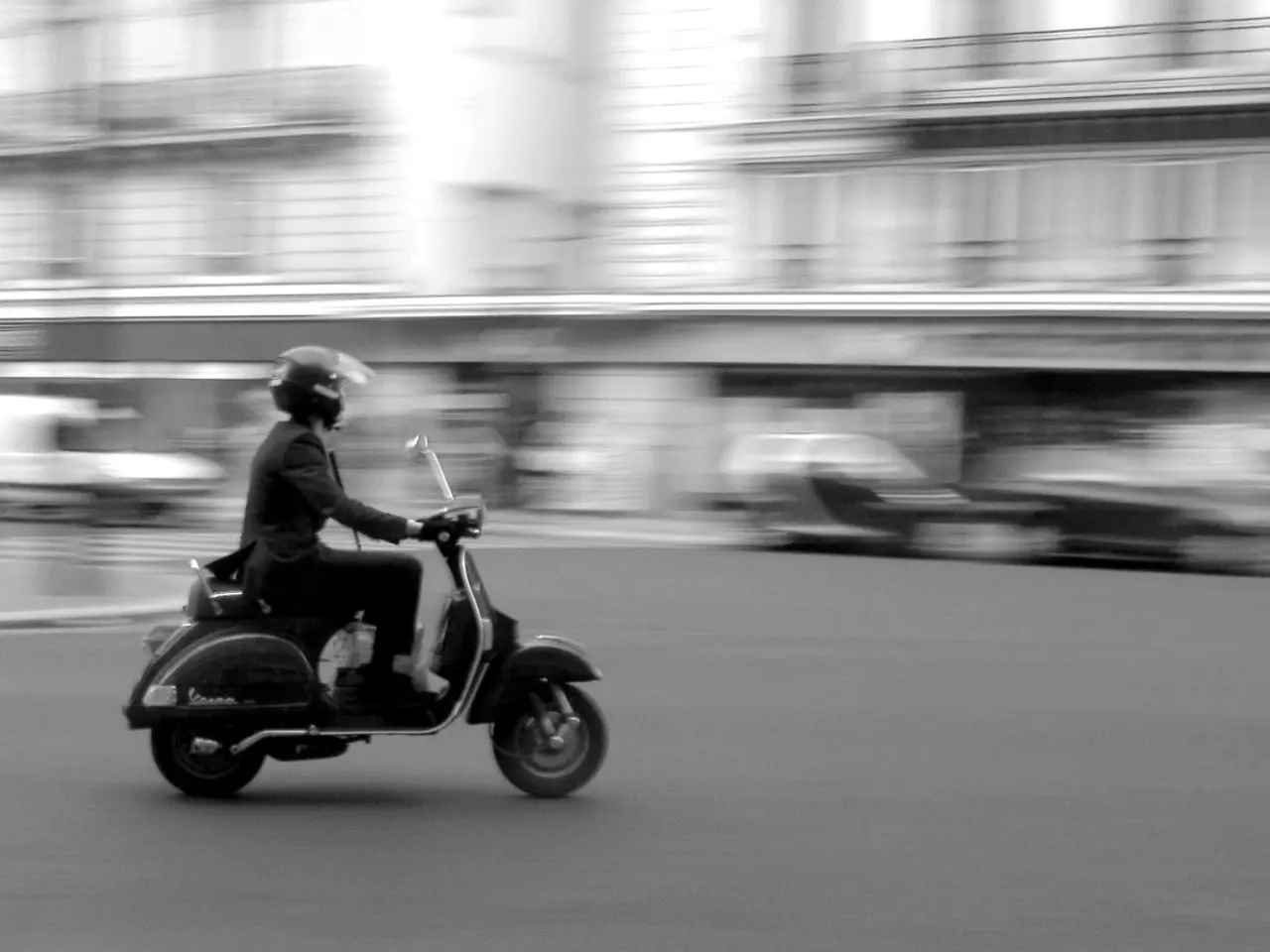E-scooter incidents resulting in injury and death in Germany reaching historic peaks
In response to a significant increase in e-scooter accidents in Germany, the country is planning to introduce safety measures and traffic rule changes to improve the safety of e-scooter users. These changes are part of broader EU moves to regulate micromobility and reduce accidents.
According to the German Insurance Association (GDV), poor driving, inappropriate speed, and a failure to yield are significant factors behind the rise in e-scooter accidents. Alcohol-related incidents account for a disproportionate number of e-scooter accidents, with alcohol playing a role in 12.4 percent of e-scooter accidents, a higher proportion than among cyclists (7.8 percent) and moped riders (5.9 percent).
To address these issues, Germany is planning to implement several safety measures. E-scooters will be required to have license plates for identification. The use of e-scooters on bike lanes and pedestrian zones will be prohibited, obliging riders to use streets on the right side. Riders will also be required to use the road when bike lanes are not available.
In addition to these changes, the EU-wide regulatory framework impacting Germany includes the likelihood of age restrictions, speed limits (commonly 25 km/h in the EU), and requirements for lights and reflectors. These measures aim to reduce accident risks by separating e-scooter traffic from vulnerable pedestrian zones and dedicated bike infrastructure, improving rider accountability, and enforcing safer riding behavior.
The number of e-scooter accidents in Germany increased by 26.7 percent in 2024 compared to 2023, with a total of 11,944 accidents recorded. Nearly half of the people involved in accidents were under 25 years old, and 82 percent were under 45. Younger and less experienced riders are more prone to e-scooter accidents. Rental e-scooter users are more frequently involved in accidents.
Wearing a helmet can correlate with lower e-scooter accident rates, but rental e-scooter riders often ride without helmets. The accidents resulted in 27 fatalities, five more than in 2023, and approximately 1,500 people suffered serious injuries, and an additional 11,400 sustained minor injuries.
As part of the safety measures, it is expected that age restrictions will be implemented to ensure that younger, less experienced riders are better equipped to handle e-scooters safely. The rapid increase in the number of e-scooters on German roads is attributed to a 37 percent rise in private ownership during 2024 and the growing ubiquity of rental scooters in cities.
Incorrect use of the road, primarily riding on pavements, was cited in 21.2 percent of e-scooter accidents. Riders aged 65 and over made up just 3.3 percent of people involved in accidents, reflecting lower usage rates in older age groups.
These changes aim to create a safer environment for e-scooter users and reduce the number of accidents on German roads. While no specific Germany-only trials or helmet mandates were mentioned, similar measures are often part of European micromobility safety strategies.
- The rising e-scooter accidents in Germany have prompted discussions on workplace-wellness and health-and-wellness, as safety concerns impact the overall well-being of users.
- Fitness-and-exercise advocates are concerned about the increase in e-scooter accidents and the potential impact on the adoption of active, sustainable transportation methods.
- Mental-health specialists are exploring the correlation between e-scooter accidents and the psychological effects on individuals involved in these incidents, particularly those who have suffered serious injuries.
- As general-news outlets cover the upsurge in e-scooter accidents, crime-and-justice reporters are examining the role of car-accidents in shaping the regulatory landscape for micromobility solutions.
- Sports enthusiasts and sports-betting enthusiasts are keeping a close eye on the evolving e-scooter safety measures, as this could influence the future of individual mobility and games that involve micromobility challenges.
- Nutritional experts stress the importance of maintaining a balanced diet and regular exercise to contribute to overall health, emphasizing that a fall from an e-scooter could lead to delayed recovery if one's health is already compromised.




